Post-Operative Dental Instructions
Read the following carefully before and after picking up your pet. If you have questions, please ask the veterinary staff at pick-up or call us at 757-786-8955 or email us.

After your pet has undergone surgery, it is essential to follow proper post-operative care instructions to ensure a smooth and speedy recovery. These instructions will help you provide the necessary care for your pet during the healing process. Please read the following instructions carefully and contact us if you have any questions or concerns.
At Home:
We would like for your pet to be kept calm, quiet and warm. Though he/she had an injectable pain medication and a nerve block, she/he may still experience some discomfort or pain and may not be eager to play or be active following his dental. Please allow him/her to rest and heal on his/her terms.
Dinner:
You can offer your pet some food this evening. He/she has fasted for several hours and may be hungry. It is okay if he/she is not interested in his food that night, but if he/she goes 24 hours without eating you must seek medical attention for him/her. For the first few days, you can offer moistened kibble or wet food for the next 14 days.
The E-Collar:
Your pet had teeth extracted and is going home with an E-collar because he/she has gingival sutures. The pain in his/her mouth is aggravating, and we do not want him/her to paw at his/her mouth and break his sutures. I know it looks uncomfortable, but it is VERY important that he/she wear it at all times if he/she cannot be watched, this includes when you leave him/her home alone, and at night when he/she is put to bed. Keep his/her cone on for at least 14 days.
Medications:
Carprofen (or Meloxicam for cats), is an NSAID safe and approved for use in dogs (meloxicam is safe for cats and dogs). He/she was given a 24-hour injectable pain medication prior to the dental. You may begin his Carprofen (or Meloxicam) in the morning. Give it with food.
Frequently Asked Questions:
Why is my pet so groggy, and for how long will he/she be groggy?
Your pet underwent general anesthesia for his/her dental cleaning. It takes time for the effects of the anesthesia
to wear off. Your pet may seem “out of it” for several hours after the surgery has taken place.
My pet lost a lot of teeth. Will he/she ever be able to eat hard food again?
Yes. Your pet can go back to his/her regular diet typically 14 days following the dental cleaning.
My pet seems to be in a lot of pain and is just not his/herself. Can I give Tylenol, Ibuprofen, or a pain
medication prescribed to me?
NO! You should never give a pet any NSAID meant for humans, nor should you give medications not
prescribed or directed by a veterinarian. If your pet still seems painful two or more days following his/her
dental, please see your veterinarian.
Now that my pet has had a dental, how can I keep his/her teeth clean?
Most pets do not allow their teeth to be brushed, and brushing does not clean below the gum line. In time, the
tartar will accumulate again. Water additives and dental chews keep the tartar at bay a negligible amount. The
best way to keep your pet’s mouth happy and to avoid future extractions is by having him or her undergo annual
dental cleanings.
Can I go ahead and give my pet its oral flea/heartworm prevention?
It may be best to wait until the following morning. Your pet may not be eager to eat the evening after it had
surgery. We wouldn’t want you to waste a dose.
Do I need to get the sutures removed?
The sutures will dissolve on their own.

